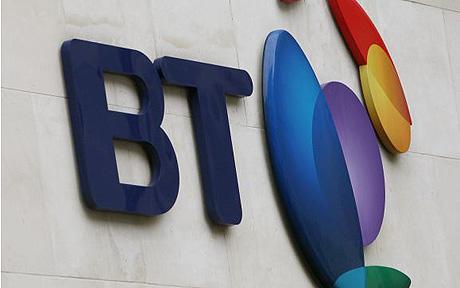
Telecom network operators Orange and Deutsche Telekom have received approval from the British Competition and Markets Authority (CMA) for selling EE to BT for £12.5 billion.
CMA approved the deal without any conditions — despite significant protest from rivals of BT in the UK.
Sky, TalkTalk, O2, Vodafone and Virgin Media have opposed the merger between EE and BT, saying the merger will have a negative impact on competition in the UK telecoms marketplace and provide BT EE with an unequal and unfair percentage ownership of the UK’s 3G and 4G mobile spectrum.
CMA said in a statement that the £12.5 billion acquisition brings together the UK’s largest fixed telecoms business and the UK’s largest mobile telecoms business.
Deutsche Telekom will have 12 percent equity stake in BT and Orange will have 4 percent. The BT board will have a representative of Deutsche Telekom. Deutsche Telekom already has presence in the U.S. telecom market through T-Mobile US.
CMA on BT-EE deal
John Wotton, Inquiry Chair at CMA, said: “Since our provisional findings, we have taken extra time to consider responses in detail but the evidence does not show that this merger is likely to cause significant harm to competition or the interests of consumers.”
“The retail mobile services market in the UK is competitive, with 4 main mobile providers and a substantial number of smaller operators. As BT is a smaller operator in mobile, it is unlikely that the merger will have a significant effect. Similarly, EE is only a minor player in retail broadband, so again it is unlikely that the merger will have a significant effect in this market.”
“We have also found that in supplying services such as backhaul, wholesale mobile or wholesale broadband services a combined BT / EE would not have both the ability and the incentive to disadvantage competitors such that there would be significant harm to competition.”
In October 2015, British CMA gave its provisional clearance.
The UK telecom industry believes that BT EE will have too much power to moderate the wholesaling of network capacity to mobile virtual network operators such as Virgin Mobile who relies on EE’s telecom network infrastructure.
“The British CMA announced today that it has given its approval for Orange and Deutsche Telekom to sell 100 percent of their shares in EE to BT, with no conditions attached,” said Orange in a statement on Friday.
The combination of BT and EE will create the UK’s leading integrated telecommunications provider, offering customers services that combine the power of fiber broadband, with Wi-Fi and advanced mobile capabilities.
Stephane Richard, chairman and CEO of Orange Group, said: “The decision provides an important signal for telecoms operators across Europe that the sector is ready for fixed-mobile consolidation.”
What BT said
BT welcomed CMA’s decision to approve its acquisition of EE.
BT aims to incorporate the EE business in coming months as distinct line of business. Marc Allera will become the CEO of EE. Earlier this month, EE announced the resignation of Olaf Swantee as CEO of the company.
BT Chief Executive Gavin Patterson said: “The combined BT and EE will be a digital champion for the UK, providing high levels of investment and driving innovation in a competitive market.”
For the year ended 31 March 2015, BT Group’s reported revenue was £17,979 million with profit before taxation of £2,645 million.
What future holds for BT
BT’s acquisition of EE is a clear strengthening of its mobile play. BT will have fixed line — Wi-Fi and fixed-line connectivity – and 4G access.
Telecom analyst experts warn that consolidation of this kind can result in less innovation in telecom services, due to lack of operator competition.
“This could be bad for subscribers. The operator itself could become a bit-pipe for the innovation of third party apps. It would be great to see BT evaluate best-practices for modern service development through the integration of its new networks, allowing it to focus on the consumer,” said Mark Windle, head of marketing, OpenCloud.
Baburajan K
[email protected]





